Effective communication with tenants, especially in difficult situations, is an essential skill for property managers and landlords. How you handle sensitive issues can significantly impact your reputation, tenant satisfaction, and the long-term success of your rental business. This guide will cover the best practices, strategies, and examples of how to communicate professionally when dealing with complex tenant situations. It will help you navigate challenging scenarios with empathy, clarity, and professionalism, ensuring positive outcomes for both parties.
Understanding the Importance of Professional Communication with Tenants
Professional communication is the cornerstone of successful property management. Whether you’re addressing late rent payments, maintenance issues, or disputes, your approach to communication can shape tenant relations and influence future interactions. By communicating clearly and effectively, you can:
- Build trust with your tenants, ensuring that they feel respected and valued.
- Prevent misunderstandings that could lead to legal issues or disputes.
- Encourage timely resolution of problems, reducing stress for both parties.
- Improve tenant retention, as tenants are more likely to stay in a property where they feel heard and treated professionally.
In this guide, we will focus on key communication strategies that will allow you to address tenant concerns while maintaining a professional demeanor.
Key Principles of Professional Communication
Before delving into specific difficult situations, it’s essential to understand the core principles of professional communication. These principles will serve as the foundation for your interactions with tenants:
Clarity and Transparency
Ensure your communication is clear and straightforward. Avoid jargon or overly technical terms, as they can confuse tenants. Be transparent about policies, expectations, and any issues that need to be addressed. When tenants understand your perspective, they are more likely to cooperate and respect the boundaries you’ve set.Timeliness and Responsiveness
Responding promptly to tenant concerns is crucial. Even if you don’t have a solution right away, acknowledging their issue and providing an estimated timeline for resolution shows that you take their concerns seriously. Delayed responses can lead to frustration and worsen the situation.Empathy and Understanding
Acknowledge the tenant’s feelings and circumstances. Showing empathy doesn’t mean you have to agree with them, but it helps build rapport and shows that you care about their experience. Empathetic communication is especially important in difficult situations, such as when tenants are facing financial hardship or personal crises.Professional Tone and Language
Always use a professional tone in your communications. Avoid emotional language, sarcasm, or criticism. Stick to facts and remain calm, even if the situation becomes heated. A composed approach will demonstrate your professionalism and help de-escalate tensions.Document Everything
Keep records of all communications with tenants. Written communication is important for protecting both you and your tenants, especially if the situation leads to legal proceedings. Always follow up on phone calls or in-person conversations with an email or letter summarizing the key points discussed.
Dealing with Late Rent Payments
Late rent payments are one of the most common issues landlords face. Handling this situation with professionalism is essential to maintaining a positive landlord-tenant relationship while also protecting your financial interests.
Setting Clear Expectations from the Start
One of the best ways to prevent late rent payments is to establish clear expectations from the beginning. Include the rent due date, grace period (if applicable), and late fee policy in the lease agreement. Make sure tenants are aware of these terms before signing the lease, and reiterate them during move-in. Clear communication at this stage helps avoid misunderstandings later on.
Communicating When Rent is Late
When a tenant fails to pay rent on time, the first step is to communicate promptly. Don’t wait too long to send a reminder. The sooner you address the issue, the more likely you are to resolve it without escalating the situation. Here are some tips on how to handle this:
Send a Friendly Reminder: The first communication should be a polite reminder that rent is due. Sometimes tenants simply forget, and a gentle nudge can solve the problem. You can send this reminder via email, text, or through a property management platform.
Use Clear and Professional Language: Avoid sounding accusatory or confrontational. For example: “Dear [Tenant’s Name], this is a friendly reminder that rent was due on [due date]. We kindly ask that you make your payment at your earliest convenience. Please let us know if there is an issue that needs to be addressed.”
Offer Solutions if Necessary: If a tenant is experiencing financial hardship, consider offering a payment plan or temporary deferment. Always document any arrangements in writing and ensure both parties agree to the terms.
Escalating the Situation
If a tenant continues to ignore rent payments, you may need to escalate your communication. Be firm but fair:
Second Reminder: If the rent is still unpaid after the initial reminder, send a second notice. This time, include the late fee (if applicable) and provide a specific deadline for payment.
Notice of Lease Violation: If the tenant hasn’t paid after the second reminder, issue a formal notice of lease violation. Be sure to outline the specific breach (failure to pay rent) and any potential consequences, such as eviction. Again, be clear and respectful, using professional language.
Legal Action: As a last resort, you may need to pursue legal action, such as initiating eviction proceedings. Before doing so, ensure that you are fully compliant with local laws, as improper eviction procedures can lead to costly legal issues.
By following these steps, you can maintain a professional relationship with your tenants, even when dealing with late payments. Always strive to find a solution that works for both parties, while protecting your financial interests.
Handling Maintenance and Repair Requests
Another area where communication is critical is responding to maintenance and repair requests. Tenants rely on you to address issues quickly and professionally to ensure that their living conditions are safe and comfortable. Delayed or inadequate responses can lead to dissatisfaction and even legal disputes.
Setting Expectations for Maintenance
It’s essential to establish clear expectations regarding maintenance from the start. Let tenants know how to submit repair requests, the process for handling them, and the timeline for completion. Setting expectations can reduce frustration if there are delays or complications.
For example, you could include the following in your lease agreement or tenant handbook:
- How tenants can report maintenance issues (email, phone, online portal, etc.).
- The timeframe in which they can expect a response.
- The type of repairs that are considered urgent versus non-urgent.
Communicating About Repairs
When a tenant submits a maintenance request, always acknowledge it promptly. Here are the key steps for communicating effectively:
Acknowledge the Request: Respond to the tenant as soon as possible to confirm that you’ve received the request. A simple message could be: “Thank you for your maintenance request. We have received your issue regarding [description of the problem], and our team will address it as soon as possible.”
Provide a Timeline: Give the tenant a clear timeline for when the issue will be addressed. If you’re unable to provide an exact date, offer an estimated range. For example: “We expect to have a contractor on-site within the next 2-3 business days to inspect and repair the issue.”
Keep the Tenant Updated: If there are any delays or changes in the timeline, make sure to update the tenant as soon as possible. Transparency is key to maintaining a positive relationship.
Follow Up After Repairs: Once the repair has been completed, follow up with the tenant to ensure they are satisfied with the work and that the issue has been resolved. This shows that you care about their experience and helps prevent future problems.
By staying on top of maintenance requests and communicating effectively, you can keep your tenants happy and prevent issues from escalating.

Get a Free Rental Analysis
Want to know how much your home will rent for? We’ll send you a free rental report!
Addressing Tenant Disputes Professionally
Tenant disputes are inevitable in property management. Disagreements can arise over issues such as noise, property damage, or misunderstandings about lease terms. How you handle these disputes can either escalate the situation or lead to a peaceful resolution. By approaching disputes with professionalism, empathy, and a clear communication strategy, you can often resolve conflicts before they become major issues.
Identifying the Root of the Dispute
Before addressing a tenant dispute, it’s crucial to thoroughly understand the issue. Listen carefully to both parties involved and gather all the facts. In some cases, what may seem like a simple disagreement could be rooted in a deeper problem. For example, a tenant might complain about noise, but upon investigation, the noise may be coming from a building maintenance issue, such as a faulty HVAC system.
Steps to Resolve Tenant Disputes
Listen Actively
When tenants approach you with a complaint or dispute, give them your full attention. Avoid interrupting, and let them explain their perspective. Acknowledge their feelings and concerns with statements such as, “I understand that this situation is frustrating.” Active listening demonstrates respect for the tenant’s viewpoint and sets the stage for a constructive discussion.Maintain a Neutral Stance
It’s essential to stay neutral, especially if the dispute involves two tenants. Avoid taking sides until you have all the facts. Your role is to mediate, not to favor one party over the other. For example, if one tenant is complaining about noise, refrain from immediately criticizing the other tenant. Instead, investigate the situation and consider all relevant factors before drawing conclusions.Stay Professional in Your Responses
Respond to disputes with a calm and professional tone. Avoid using inflammatory or emotionally charged language. Use objective terms to explain the situation, and keep the conversation focused on facts. For instance, rather than saying, “You are causing problems with your behavior,” say, “I’ve received complaints regarding noise levels coming from your apartment. Let’s discuss a solution that works for everyone.”Offer Solutions
Once you have a clear understanding of the issue, suggest possible solutions. Be fair and impartial in offering solutions that address the concerns of both parties. If the issue involves noise, you might offer one tenant soundproofing options or remind the other tenant about noise regulations in the lease agreement.If the dispute centers around a common area, such as a shared laundry room, offer solutions that will help both tenants coexist peacefully. This could include setting specific hours for laundry use or ensuring the area is cleaned regularly.
Follow Up
After implementing a solution, check in with both tenants to ensure the issue has been resolved to their satisfaction. If tensions persist, be prepared to revisit the situation and adjust the solution as needed. Regular follow-ups demonstrate that you are committed to resolving disputes and maintaining a harmonious living environment.
Legal Considerations in Disputes
In some cases, tenant disputes may escalate to the point where legal intervention is required. This could include disputes over lease terms, property damage, or unlawful behavior. Before taking legal action, it’s important to review the lease agreement, local housing laws, and any relevant documentation. It may be necessary to involve legal professionals if the situation is complex or if the dispute cannot be resolved amicably.
Remember, thorough documentation is key. Keep detailed records of all communications, including emails, letters, and phone calls, regarding the dispute. This documentation will be crucial if legal action becomes necessary.
Conducting Property Inspections with Professionalism
Regular property inspections are vital for maintaining the condition of your rental units and ensuring tenant compliance with lease terms. Inspections also allow you to spot potential maintenance issues before they become costly problems. However, it’s important to approach property inspections professionally to avoid creating unnecessary tension with tenants.
Setting Expectations for Inspections
The key to conducting smooth property inspections is clear communication. Be sure to provide tenants with advance notice of the inspection date, as required by law (typically 24 to 48 hours). Inform them of the purpose of the inspection, and ensure they understand that it is not an invasion of privacy, but rather a standard procedure to ensure the property is well-maintained.
Provide Sufficient Notice: In many areas, the law requires that tenants be given a certain amount of notice before an inspection. Ensure you comply with these legal requirements to avoid potential legal issues.
Explain the Purpose: Let your tenants know why the inspection is taking place. For example, “We conduct routine inspections to ensure the property is in good condition and to address any maintenance needs.”
During the Inspection
When you arrive for the inspection, be respectful of the tenant’s space. Treat their home with care, and avoid making negative comments about their living conditions. If there are issues to address, be professional and objective in your approach.
Be On Time: Arriving late can disrupt your tenant’s schedule and create frustration. Being punctual shows respect for their time and reinforces your professionalism.
Be Respectful: Avoid making the tenant feel uncomfortable. If you need to inspect personal items or spaces (such as closets), always ask for permission before doing so. Be mindful of the tenant’s privacy and avoid any unnecessary intrusion.
Document Everything: During the inspection, take notes and photographs of any damage, maintenance needs, or areas of concern. Keep this documentation for your records, as it may be important for future reference or repairs.
After the Inspection
Once the inspection is complete, communicate any findings to the tenant in writing. If repairs or maintenance are needed, provide a timeline for when these issues will be addressed. If no issues were found, thank the tenant for allowing you to inspect the property.
It’s also a good practice to offer tenants the opportunity to provide feedback about the condition of the property or any concerns they may have. This shows that you value their input and are willing to make necessary improvements.
Handling Lease Renewals and Non-Renewals
Lease renewals are an important part of property management. The process should be handled professionally to ensure smooth transitions and maintain positive relationships with tenants. How you communicate about lease renewals—or the decision not to renew a lease—can significantly impact tenant retention and your reputation as a landlord.
Approaching Lease Renewals
When a tenant’s lease is nearing its expiration date, it’s essential to start the renewal process well in advance. This gives both you and the tenant time to discuss any changes or concerns.
Send Renewal Notices Early: Ideally, send a renewal notice 60 to 90 days before the lease expires. This gives tenants time to review the terms, ask questions, and decide if they want to stay.
Be Clear About Terms: If there will be any changes to the lease (such as a rent increase or changes to maintenance responsibilities), communicate these changes clearly in the renewal notice. Transparency helps avoid misunderstandings.
Be Flexible: If tenants express concerns about the renewal terms, be open to discussion. For example, if a tenant is requesting a rent reduction or a longer lease term, consider whether their requests are reasonable and discuss possible compromises.
Non-Renewals
In cases where you decide not to renew a lease, communication is key. This can be a difficult situation for both parties, and it’s important to handle it with professionalism and respect.
Provide Proper Notice: If you choose not to renew a lease, make sure you provide the tenant with adequate notice as required by law. Typically, this is 30 to 60 days before the lease expiration date.
Be Honest but Tactful: When explaining the decision not to renew, be honest but tactful. Avoid giving personal or emotional reasons. Stick to factual information, such as needing to make significant changes to the property or planning to sell the unit.
Offer Support: If possible, offer assistance in finding a new place to live. If you have relationships with other landlords or property managers, you could refer the tenant to available units.
By handling lease renewals and non-renewals with professionalism and care, you can maintain positive relationships with your tenants, even when they are not staying long-term.

Managing Evictions Professionally
Eviction is one of the most challenging aspects of property management. It’s a situation that no landlord or tenant wants to face, but sometimes it’s necessary to protect the property and the community. Handling evictions with professionalism and in compliance with the law is essential to minimize conflict and ensure a smooth process.
Understanding the Eviction Process
Before initiating an eviction, it’s crucial to familiarize yourself with local laws and regulations regarding eviction procedures. The process can vary significantly from one jurisdiction to another, and failure to follow the correct procedures can lead to legal challenges and delays.
Know the Grounds for Eviction: Common reasons for eviction include non-payment of rent, violation of lease terms (such as unauthorized pets or guests), or causing significant property damage. In some cases, eviction may also be necessary due to criminal activity or disturbances that violate community rules.
Follow Legal Procedures: Each step of the eviction process must be completed in accordance with state and local laws. This typically involves issuing a formal notice to the tenant, providing them with an opportunity to remedy the situation, and seeking a court order for eviction if necessary. Always consult with a legal professional to ensure compliance with the law.
Communicating the Eviction Notice
The eviction notice should be delivered to the tenant in writing and include all relevant details, such as the reason for the eviction, the amount of overdue rent (if applicable), and a deadline for the tenant to remedy the situation. The notice should be clear, concise, and professional in tone.
Stay Neutral and Factual: It’s important to avoid using accusatory or emotional language when delivering an eviction notice. Stick to the facts, such as the tenant’s non-payment of rent or lease violations.
Offer a Grace Period (if applicable): In some cases, tenants may be able to resolve the issue by paying overdue rent or correcting lease violations within a certain time frame. If this is possible, allow the tenant a grace period to remedy the situation before proceeding with eviction.
Handling the Eviction Process
If the tenant fails to resolve the issue within the specified timeframe, you may need to proceed with a formal eviction process, which may involve filing paperwork with the court and attending a hearing.
Maintain Professionalism in Court: If the case goes to court, remain professional and focused on the facts. Present all relevant documentation, such as the lease agreement, payment records, and any communication with the tenant. Avoid speaking negatively about the tenant or allowing emotions to cloud your judgment.
Prepare for a Potential Appeal: In some cases, tenants may choose to appeal an eviction decision. Be prepared for the possibility of an appeal and ensure you have all necessary documentation to support your case.
Respect the Tenant’s Rights: Throughout the eviction process, always respect the tenant’s legal rights. Do not attempt to physically remove the tenant from the property or take other illegal actions. Once the eviction process has been completed and a court order is in place, you may take steps to regain possession of the property.
Dealing with Tenant Complaints and Maintenance Requests
Another aspect of property management that requires effective communication is handling tenant complaints and maintenance requests. Tenants are more likely to remain satisfied and renew their leases if they feel that their concerns are addressed promptly and professionally.
Acknowledging Tenant Complaints
When a tenant raises a concern or complaint, whether it’s about the property’s condition or a neighbor’s behavior, it’s essential to acknowledge their issue and address it as quickly as possible.
Listen Carefully: As with disputes, when a tenant presents a complaint, actively listen to what they are saying. Understand the issue before taking any action, and ask for specific details if necessary.
Stay Calm and Professional: Even if the complaint seems trivial or unfounded, maintain a calm and professional demeanor. Avoid getting defensive, and instead focus on finding a solution.
Take Prompt Action: Once you understand the nature of the complaint, act quickly to resolve the issue. If a maintenance issue is raised, schedule repairs as soon as possible. If the complaint involves a neighbor, investigate the situation and, if necessary, mediate between the tenants to find a resolution.
Managing Maintenance Requests
Timely and effective maintenance is crucial to maintaining tenant satisfaction. Make sure your tenants know how to submit maintenance requests and that their concerns will be addressed in a reasonable time frame.
Set Clear Expectations: Communicate with tenants about how maintenance requests should be submitted (e.g., via email, a maintenance portal, or phone). Provide a timeline for how long it will take to address issues, depending on their severity. Routine maintenance may take longer, but urgent issues, such as plumbing problems or electrical hazards, should be addressed immediately.
Provide Updates: Keep tenants informed about the progress of their maintenance requests. If there is a delay in getting a repair done, inform the tenant and provide an updated timeline.
Follow Up After the Repair: After a maintenance issue is resolved, follow up with the tenant to ensure they are satisfied with the repair and that no additional issues have arisen.
Handling Complaints Professionally
Not every complaint can be resolved immediately, and some may require more complex solutions. However, by handling complaints with professionalism, you can build stronger relationships with your tenants and increase tenant retention.
Be Transparent: If you cannot immediately resolve a complaint or issue, explain the reason why and outline the steps you are taking to address it. Keeping tenants in the loop builds trust and reduces frustration.
Offer Solutions: In some cases, you may be able to offer compensation for an inconvenience. For example, if there is a significant delay in completing a maintenance request, you could offer a rent reduction for the following month as a goodwill gesture. However, ensure that any compensation is reasonable and aligned with your lease terms.
Maintaining a Positive Professional Relationship with Tenants
A successful property management strategy is built on maintaining a professional and positive relationship with tenants throughout their time in your property. Good communication can prevent many problems from escalating and contribute to a positive reputation as a landlord or property manager.
Regular Communication is Key
Establish clear lines of communication with tenants from the start of the lease. Ensure tenants know how to reach you in case of an emergency and that they can expect timely responses to their inquiries.
Provide Multiple Communication Channels: Offer tenants various ways to contact you, including phone, email, or an online portal. This flexibility allows tenants to choose the most convenient method for them.
Be Proactive: Regularly check in with tenants to see if they have any concerns or maintenance requests. Even if there are no issues, a quick email or phone call asking if everything is going well can go a long way in building a positive relationship.
Show Appreciation
Small gestures of appreciation can go a long way in maintaining a positive relationship with tenants. Sending a thank-you note after a lease renewal or offering a holiday gift can show that you value them as tenants.
Acknowledge Long-Term Tenants: If a tenant has been with you for an extended period, consider offering a token of appreciation, such as a gift card or a discount on rent. This helps foster goodwill and encourages tenants to stay longer.
Create a Welcoming Environment: Ensure your properties are well-maintained and that tenants feel safe and comfortable in their homes. A positive living environment is one of the most effective ways to maintain a good relationship with tenants.
By approaching difficult situations with professionalism, clear communication, and empathy, property managers can effectively manage tenant relationships, resolve conflicts, and maintain a high level of tenant satisfaction. Whether dealing with disputes, maintenance requests, or evictions, being proactive and maintaining professionalism will create a positive rental experience for all parties involved.
Suggested Helpful links:
The Comprehensive Guide to Legal Compliance in Palm Beach County Property Management
How to Handle Tenant Issues Like a Pro
How Do Landlords Protect Their Property Value While Renting?
Rent Collection Services Palm Beach
How to Ensure Legal Compliance in Property Management in Palm Beach County



